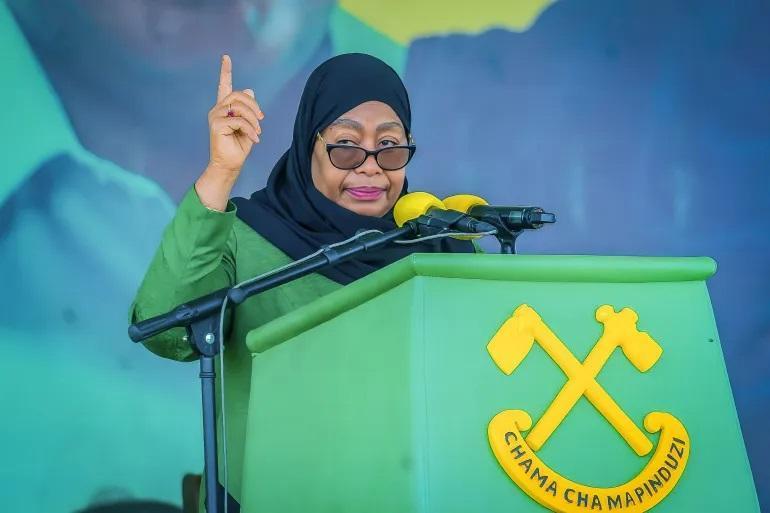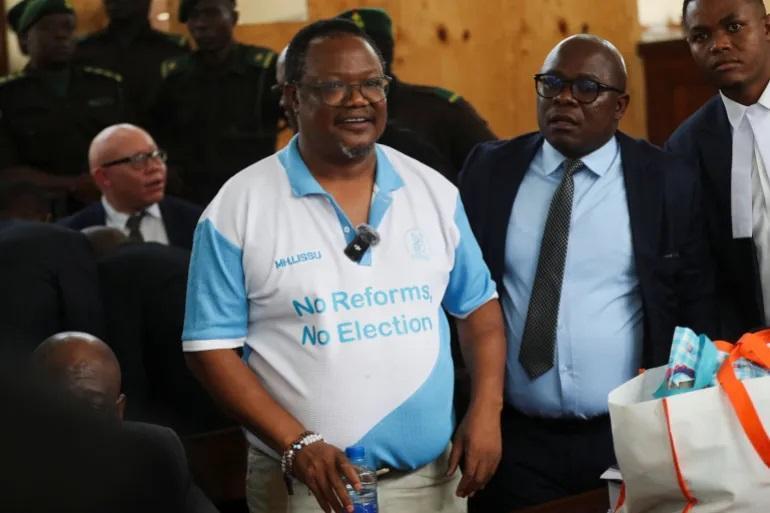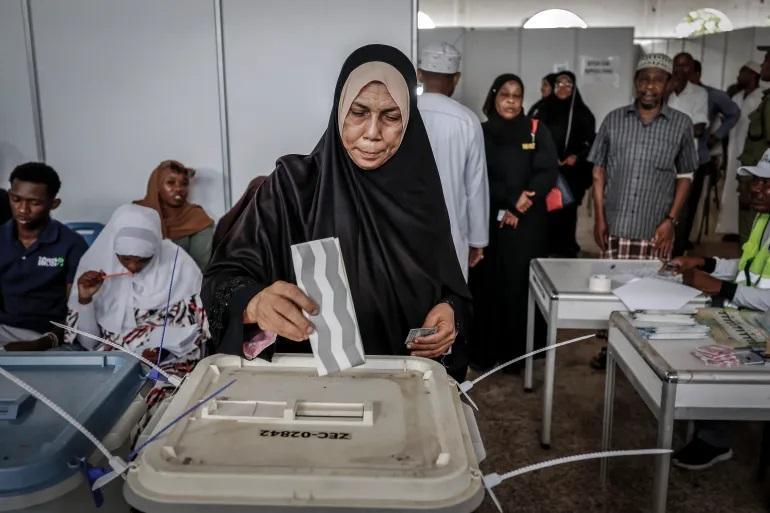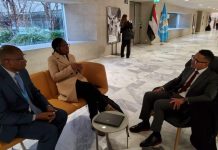Africa-Press – Tanzania. Voters in Tanzania headed to the polls on October 29 for general elections, including presidential, parliamentary, and local council races. This election is seen as a critical test for the legitimacy of President Samia Suluhu Hassan and her ruling party, CCM, which has dominated the political landscape since independence in 1961. The absence of major opposition parties raises concerns about the fairness of the electoral process.
Voters in Tanzania headed to the polls on Wednesday, October 29, for general elections that include presidential, parliamentary, and local council races.
This election is widely viewed as a critical test for the legitimacy of the current president, Samia Suluhu Hassan, and her ruling party, CCM, which has dominated the political landscape since the country’s independence in 1961.

The Attorney General’s office confirmed that the general elections are fully in line with the constitution and the laws of the country. In a statement on Tuesday, Attorney General Hamza Johari said, “The five-year term has ended as stipulated by the constitution, and therefore the elections scheduled today are constitutional.”
Johari added that all candidates for the presidency, parliament, and local council seats across the country have been approved according to the law, making these elections legitimate.
President Samia, the first woman to hold this position in Tanzania’s history, is seeking a new term after assuming power in March 2021 following the death of former president John Magufuli. During her tenure, she has adopted a conciliatory tone towards the opposition and implemented partial reforms in media and civil activities. However, observers believe these steps have not translated into genuine political openness.
The elections come amid the absence of major opposition parties, particularly Chadema, whose candidates were excluded from the race and whose leader, Tundu Lissu, was arrested on charges of “inciting unrest.” This situation has drawn criticism from international human rights organizations, which argue that the political climate does not guarantee free and fair elections.

According to the National Electoral Commission, over 37 million registered voters will cast their ballots at more than 20,000 polling stations both within the country and abroad, under heightened security measures. More than 100 local and international organizations have been accredited to monitor the electoral process, despite restrictions on the movement of some foreign observers.
Media reports indicate that the ruling party has strong chances of winning, given the weak competition and lack of effective political alternatives, raising questions about the future of political pluralism in the country. This election is the first to be held under legal amendments enacted in 2024, which included changes to the electoral law and the independent electoral body, aimed at improving transparency and enhancing voter confidence.
Tanzania has experienced a long history of political dominance by the ruling party, CCM, since gaining independence in 1961. The current president, Samia Suluhu Hassan, took office in March 2021 following the death of her predecessor, John Magufuli. While she has made some efforts to engage with the opposition and implement reforms, significant challenges remain regarding political openness and the viability of a multiparty system.
For More News And Analysis About Tanzania Follow Africa-Press







